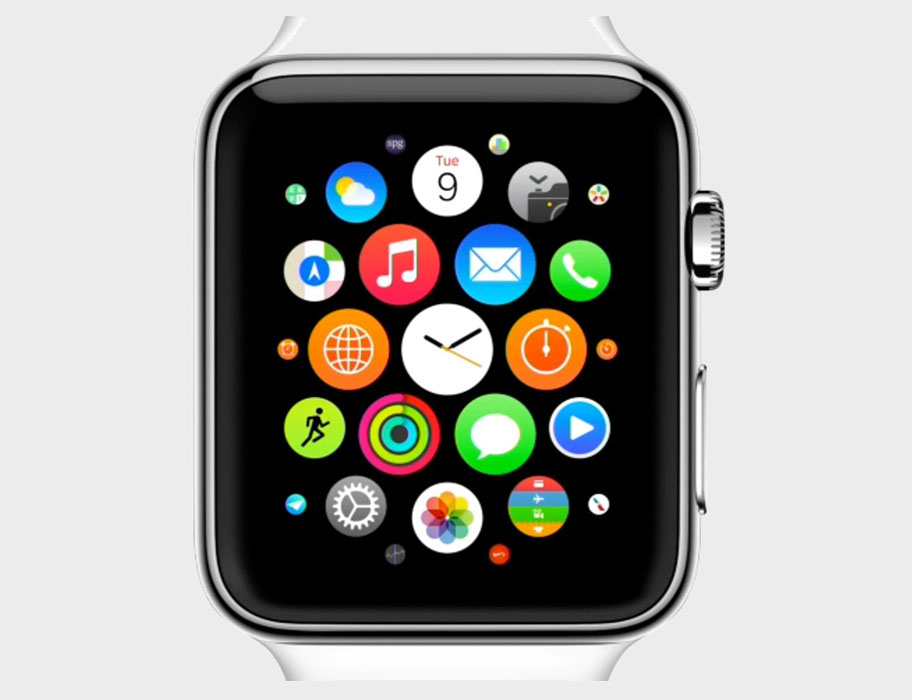|
|||

Obviously, I cannot predict the future, but I don’t believe that wearable technology will ever take off. Mind you, I have no doubt that the iWatch will be a success. But the question now is whether Apple can force the iWatch to be an indispensable part of the Apple ecosystem - so much so - that the iPhone would not be able to work optimally without it. I’m sure that Apple will try. However, it’s not a sure thing that consumers will take to the iWatch, once the initial buzz dies done. You see, I don’t wear a watch. I find it to be a liberating experience to free my wrist from encumbrance. The watch was created back in the day when people had to tell time on the go. However, in our modern society, time is always with us on the display of our smart phones. In other words, if I need to tell the time, I just reach for my smart phone. I don’t need to inconvenience my wrist all day long just so I’ll know the time for that couple of times a day. Of course, the iWatch is more than just a watch. It does many things. It can be paired with your iPhone to send notification to you watch. It can be used for various biometric readings. And it can be used to send messages. Oh what fun! Sounds like the iWatch is a great little gadget. But do we really need it? Technology has been trying to enter the fashion industry for as long as I can remember. In some cases, it has worked. For example, different synthetic fibers have been used to create new categories of clothing, like sweat absorbing fibers used in Nike’s Dri-fit apparel. However, wearable technology is a bit more complicated than material science. With wearable technology, adding circuitry is required, which is where the problem begins. The problem with circuitry is that it makes fashion and technology incompatible. The thing about clothes is that you have to wash it. People dirty their clothes. The environment dirty our clothes. A shirt with wearable technology has circuitry which isn’t going to do well in the washer and dryer. Then there is the issue of the fashion life cycle versus the technological life cycle. It is possible that a piece of technology would outlive the fashionability of a piece of wearable technology. I mean who would wear a pair of flared jeans with current technology if skinny jeans are all the rage? Alternatively, there is also the possibility that the technology of the wearable technology could become obsolete, rendering that piece of clothing unwearable, even if it’s still fashionable. I mean who would wear a fashionable pair of skinny jeans if the technology is no longer useful? Fashion and technology are fickle together. It is for this reason that companies that want to enter the wearable technology world have concentrated on accessories items, like Google’s much maligned Glass and Apple’s iWatch. With accessories like watches and glasses, and broaches and rings, you don’t have to put it in the wash, and you don’t have to concern yourself as much with the fashion life cycle. However, putting technology on accessories isn’t really creating a true wearable technology. It’s just a new category of gadgets. And because of that, I believe that fashion will eventually triumph over wearable gadgetry given that wearable gadgetry is anti-fashion. The bottom line is this. Are shoppers willing to give up fashion variety and individuality for hype? And at the luxury aspirational level, are they willing to give up status for some gadgetry? I suppose that’s why Apple introduced their solid gold version of the iWatch, in order to compete against the Rolexes and Patek Philippes of the world. But what happens when the first generation iWatch becomes obsolete? Will Apple provide an upgrade? Personally, I think that the iWatch and other wearable gadgetries will be fun at first, but human nature will eventually win over this debate. People are going to want to show off with expensive jewelry - not gadgets. And people will continue to want whatever bling they see on the red carpet. |
|||
